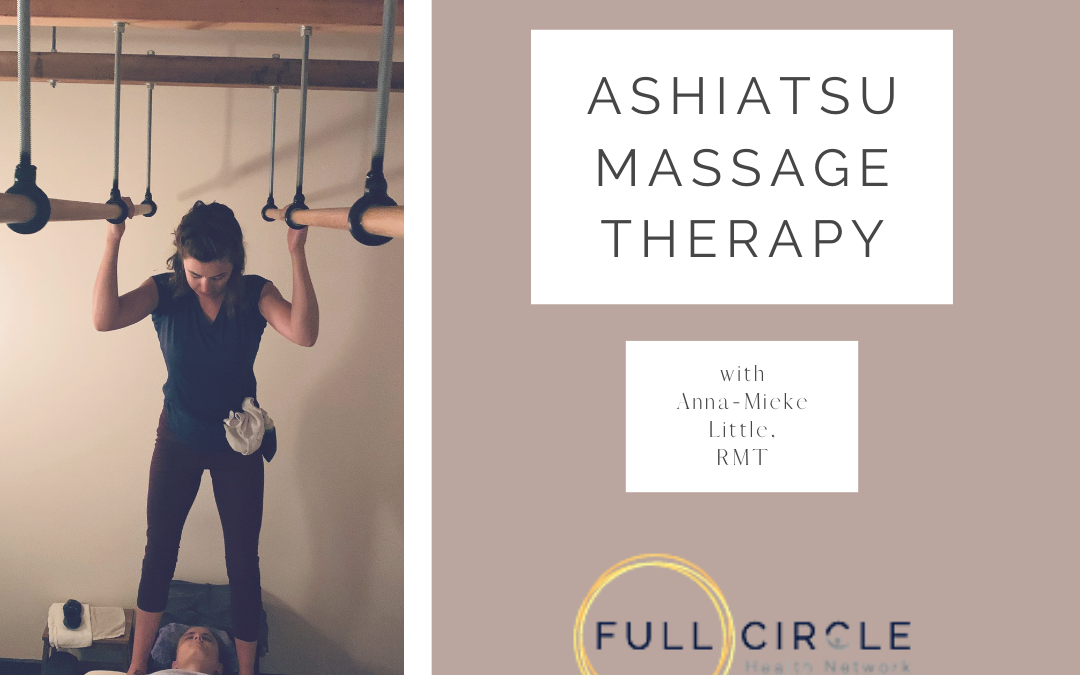FAQs with Anna-Mieke Little, Registered Massage Therapist (RMT)- Ashiatsu massage certified
What does Ashiatsu Massage mean?! Is it true you use your FEET?!
Ashiatsu is a Japanese word meaning foot pressure:
Ashi (foot) atsu (pressure)
Where did Ashiatsu Massage originate?
Although a Japanese word, using one’s feet to massage started in India as early as the 12th century. Chavutti Thirumal is the Malayalam (an Indian language) word for foot pressure. Ropes were hung from the ceiling to help stabilize the person giving massage, with the receiver lying on a mat on the floor. Barefoot massage practice evolved through Asia and the Pacific Islands; only in the past 20 years has this style gained popularity in the Western World.
Do other people get Ashiatsu massage? Do other people like it?
Yes and yes. I’ve started massaging clients with my feet after having treated them for over a year with my hands. Many people say they will never go back to hands! I often hear that it’s a broader, more forceful pressure- some people can’t even tell the difference between hands and feet!
Can you do specific pressure, given your foot is bigger than your hand?
I can apply a lot of force through my first metatarsals (big toes)! Heel pressure can also be a very ‘direct’ technique. I often also use my hands during an Ashiatsu treatment, for example face massage and specific neck treatment.
What are the benefits of Ashiatsu Massage?
The answer is two-fold: there are benefits for both practitioner and client.
Practitioner Benefits:
Humans are bipedal for a reason. Unlike our hands, our feet are designed to transfer our weight (eg. walking, standing) through tiny ligaments, joints and muscles. Gravity is a huge help- instead of pushing from my shoulders through my hands, my weight naturally falls through my feet. The ergonomics of Ashiatsu massage lend to using more global muscles (core, thigh stabilizers) during massage, rather than repeatedly straining my hands and forearms. Using my feet more than my hands will help reduce my chance of developing chronic injuries as an RMT.
Also, it’s extremely fun.
Client Benefits:
My foot is at least twice the size of my hand; therefore, I cover a lot more surface area in a stroke. Since my weight is distributed over a larger area, there is less pressure per square inch (PSI) which feels broad and comforting. Although a foreign idea to some, being massaged by feet is very relaxing. Elbows, thumbs and fingers are actually rather pokey!
Are you hanging up there? Is it safe?!
Although Ashiastu massage requires great balance and precision, slow and controlled movement along with two secure 8-foot bars make Ashiatsu massage very safe. I’d say 25% of the time I use my feet while seated at the head of the table (upper back, shoulders, neck), and the rest of the time is spent standing on the table or stool.
Is this type of massage covered by my insurance?
Absolutely. Ashiatsu Massage is considered a technique in Registered Massage Therapy, and is thereby covered (provided you have insurance).
…Did you teach Ashiatsu massage to yourself? Where did you learn this technique?
In August 2019 I became certified to practice Ashiatsu massage through the CIAMT (Canadian Institute of Ashiatsu Massage Therapy) after completing a 4-day long intensive ashiatsu massage course. This is of course, in addition to my training as a registered massage therapist.


Recent Comments